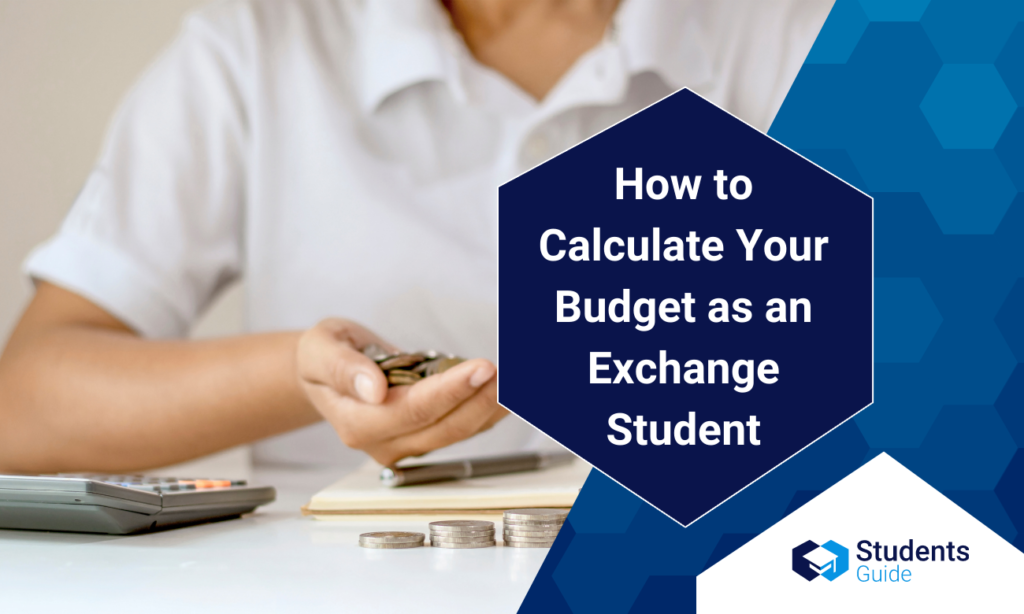When making the decision to study abroad, one of the most important things to consider is the budget you’ll have during your time as a student. During each month there are many aspects that involve the use of your money, and creating a budget will allow you to prioritise your spending and optimise the use of your income.

Exchange Student Life – What aspects do you need to consider?
Here are four key tips to help you plan your exchange, some of which we will go into in more detail later in this article:
First you should consider the city you are going to live in and the currency they use in that country. You can compare the cost of living in the city where you currently live or study with your destination, so you can get an idea of what your budget should be.
Then you should define the time period for which you are going to calculate your budget, i.e. whether you are going to calculate it on a monthly, half-yearly or yearly basis.
The third step is to define in advance your monthly inflows and outflows, i.e. your income and your expenses.
Finally, we recommend making a first simulation of your budget balance by evaluating your income and your expenses. That is to say, based on your previous planning, make a realistic comparison between your income and your expenses so that you can get an idea of whether you are on the right track or whether you need to make some changes and re-establish priorities.
Inflows and Outflows
In your income, you will take into account all the income you will receive as a student abroad, i.e:
- scholarships
- financial support (from an organisation, the government or the university itself)
- loans
- savings
- any salary in case you are working or plan to work
- money sent to you by family members
All the money that comes in from one or more of these sources will become the capital you will have during your school year, which you must manage wisely to cover all your expenses.
Cash outflows represent all the expenses that you will incur in a given period of time. These expenses can in turn be categorised into fixed and variable expenses.
Fixed expenses are those that you cannot afford not to cover and are characterised by having a known periodicity and amount, among them we find:
- university tuition fees
- accommodation
- public services
- transport allowance
- mobile phone / internet
- medical insurance
The category of variable expenses includes all expenses that can change from one period to another. Here we will take into account expenses for:
- meals (supermarket, delivery, restaurants)
- outings
- shopping
- travel
- gym or sports
These are simply expenses that you cannot anticipate and that in some cases you can live without.
Accommodation
Finding a place to live can be one of the most stressful and important moments of your experience. Are you going to live in a student residence? Are you going to rent a room in a shared flat? Do you prefer the privacy of a studio apartment all to yourself? This is a very important aspect to consider, as prices can vary depending on your preference.
Find out which are the most reliable websites to look for accommodation and about the rental rules in force in the country or city. In most cities they usually ask for a one month guarantee plus the first month’s rent to enter the property, but in other cities they may ask for 2 months of guarantee, so you have to take into account this expense in your first month of arrival. It is important to keep in mind that this money will be returned to you at the end of your contract if you comply with the conditions set out in the contract.
Have fun, but be careful
Arriving in a new city and meeting new people can tempt you to spend a lot of money on outings, parties and sightseeing, but… You should be careful!
Overspending on these kinds of things can lead to you not being able to cover certain necessary and more important expenses. The reason why we recommend always taking into account the entertainment expenses in your budget is so that you know how much money you are going to spend and you respect it. This way you can have fun without having to go into debt to cover the month’s expenses.
The last but very important tip is to always set aside a small amount for savings, either for an emergency or simply to have some extra money at the end of your experience that you can use to treat yourself or go on a big trip.

Born in Málaga, Alejandro Martín holds a Master’s in Multilingual and Intercultural Communication. His love for travel mainly stems from his attraction to different gastronomic cultures and cooking. His other passions are Afro-American music and skateboarding.
